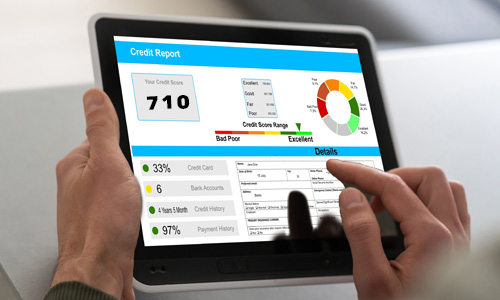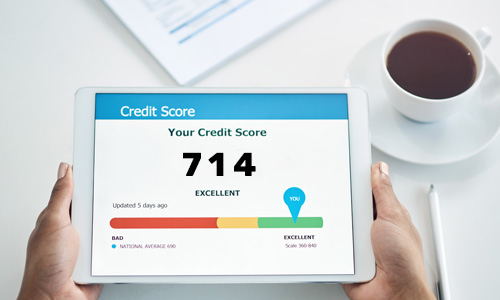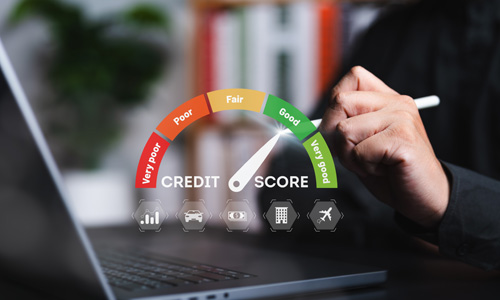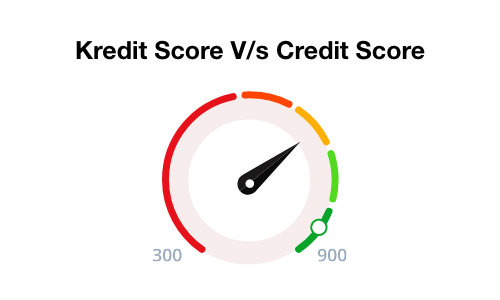How Long After You Pay Off Debt Does Your Credit Improve?
Paying off debt might lead to a temporary drop in credit scores, although credit scores eventually go up after paying off debt. There is a possibility that fulfilling your payment obligations on a loan or credit card debt could result in a decrease in your credit scores for a while. This is primarily due to the fact that factors such as credit mix, credit history length, and credit utilisation ratio can be affected by debt repayment, potentially impacting your credit scores.
With that said, this should not discourage you from addressing your outstanding debts. The advantages of debt repayment certainly outweigh the potential temporary drop in credit scores, which is likely to be short-lived.
To better understand why your credit scores may decrease after paying off debt, it is important to consider the factors involved in calculating these scores.
What is a AECB Credit Score?
AECB Credit scores are three-digit numbers that indicate the creditworthiness of individuals. These scores are determined based on information in your credit reports, which are generated by the Al Etihad Credit Bureau (AECB) in the UAE.
The AECB receives data regarding your various credit accounts, including personal loans, credit cards, and auto and mortgage loans, from banks, lending institutions, and other sources in the country.
The credit scores are then calculated using a formula that assesses your creditworthiness, specifically your likelihood of making timely debt payments. Lenders take credit scores into consideration when deciding whether to extend credit to you.
Here is an overview of the major factors that go into the calculation of your credit scores -
- Payment history: Your track record of repaying debts and bills in the past, including any instances of late or missed payments, can impact your credit scores negatively.
- Length of credit history: The duration for which your credit accounts have been active is recorded in your credit reports. A longer credit history tends to have a positive influence on your scores.
- Newer lines of credit: Recent credit accounts that you have opened are taken into account when calculating your credit scores.
- Credit mix: The variety of your credit accounts, such as loans, credit cards, and mortgages, is also considered for the calculation of your credit score. A diverse credit portfolio can have a favourable impact on your scores.
- Credit utilisation ratio: This ratio, obtained by dividing the amount of revolving credit you are using by your total available credit, can also influence your credit scores. It is advisable to keep this ratio as low as possible (ideally below 30%) to maintain and improve your credit score.
Will My Credit Score Improve After Paying Off Debts?
Debt repayment can potentially lower your credit scores if it affects factors like credit mix, credit history length, or credit utilisation ratio.
For instance, paying off your sole instalment loan, such as an auto loan or mortgage, could decrease the diversity of your credit mix and have a temporary negative impact on your scores. This is because lenders prefer to see responsible management of different types of debt. As paying off your only line of instalment credit reduces your credit mix, it can potentially lead to a drop in credit scores.
Similarly, if you fully repay a credit card debt and close your card, your credit scores may decrease. This is because closing a line of credit reduces your total available credit, which could result in a higher credit utilisation ratio. Additionally, closing your oldest line of credit can negatively affect the length of your credit history, further contributing to a decline in your scores.
To sum up, credit scores tend to go up after paying off debt. However, the factors mentioned above may prevent an immediate increase in credit scores.
When Does the Credit Score Actually Reflect Improvement?
Typically, the AECB receives updated information from your creditors and lenders every 30 to 45 days. As a result, if you have recently paid off a debt, it may take more than a month to observe any changes in your credit scores.
To see the impact of debt repayment on your credit score, you can check out your credit score and credit report after some time.
You can easily access your credit report through the official website or the mobile application of the Al Etihad Credit Bureau (AECB). Alternatively, you can check your credit score range for free on Policybazaar.ae.
For a free credit score range check on our site, click on the ‘Banking Products’ button above and choose the ‘check free credit score’ option on the left side.
Is Paying Debts on Time Worth It?
While the answer is a big ‘Yes’, it is important to address the question of whether you should always pay off your debt, especially considering the potential dip in credit scores that may occur, in detail.
While it is true that paying off debt can temporarily impact your credit scores, it is crucial to prioritise your debt payments and not ignore what you owe.
In most cases, any negative effects on your credit scores resulting from debt repayment are unlikely to be permanent. The long-term benefits of paying off your debts, such as improved credit scores and the ability to live a debt-free life, far outweigh any temporary setbacks.
Bottom Line - Credit Scores Go Up after Paying Off Debts!
Maintaining a good credit history and responsible debt management are essential for your financial well-being. By consistently making timely payments and reducing your outstanding debts, you establish a positive credit profile that lenders appreciate. This can open doors to future credit opportunities and provide you with more favourable terms and interest rates.
Remember, your credit score is just one aspect of your overall financial health. While it plays a significant role in certain financial transactions such as obtaining loans or mortgages, other factors like your income, savings, and employment stability also contribute to your financial stability and must be considered accordingly.
Monitor your credit reports regularly, maintain responsible financial habits, and focus on achieving a healthy balance between managing debt and building a solid financial foundation.
Policybazaar UAE – Helping you navigate the wilderness of the insurance world!
| Credit Score for different types of Loan | |||
|---|---|---|---|
| Credit Score for Personal Loan | Credit Score for House Loan | Credit Score for Car Loan | Credit Score for Student Loan |

More From Credit Score
- Recent Articles
- Popular Articles












